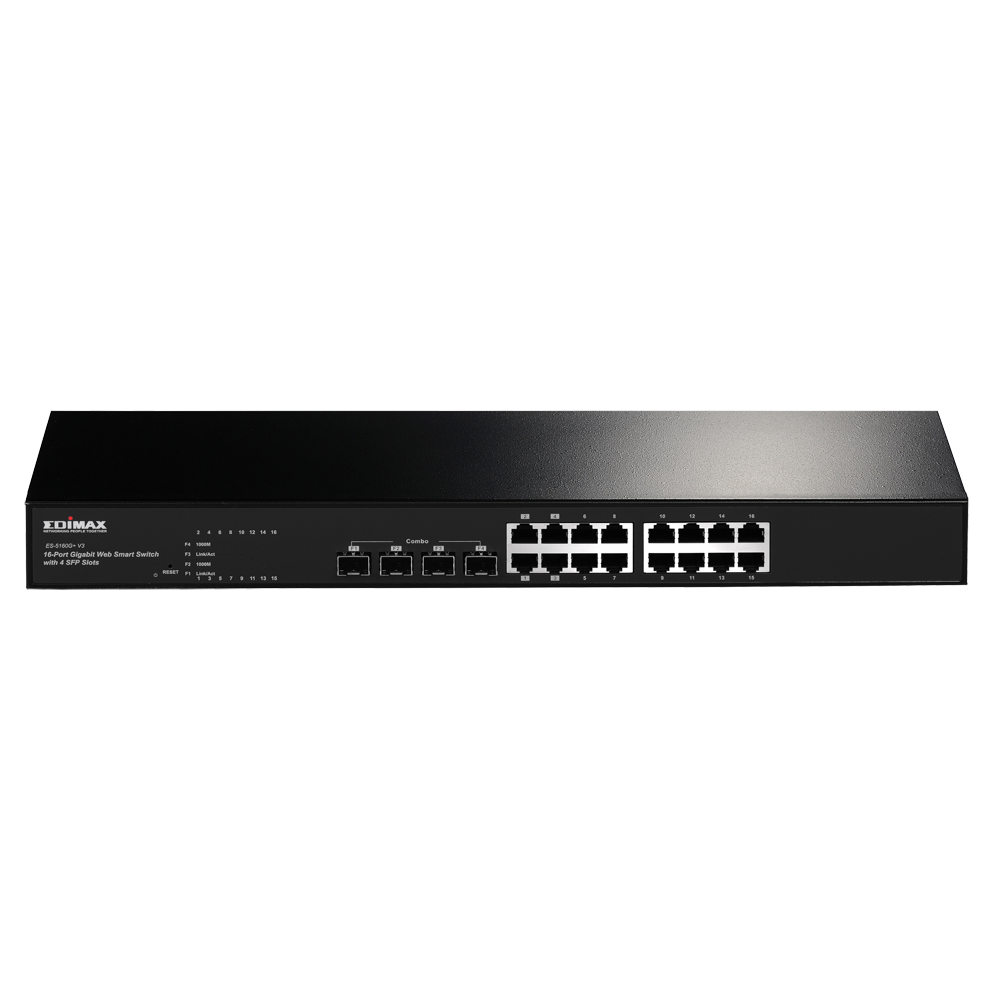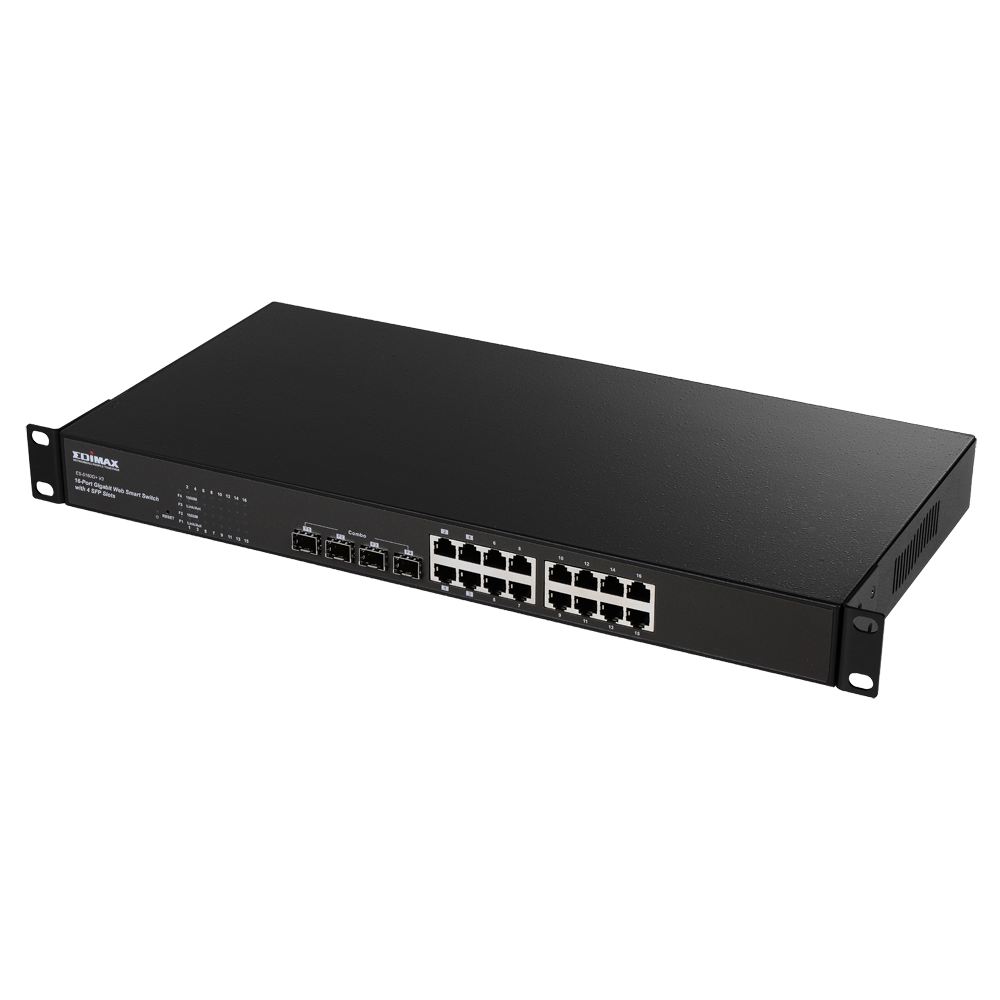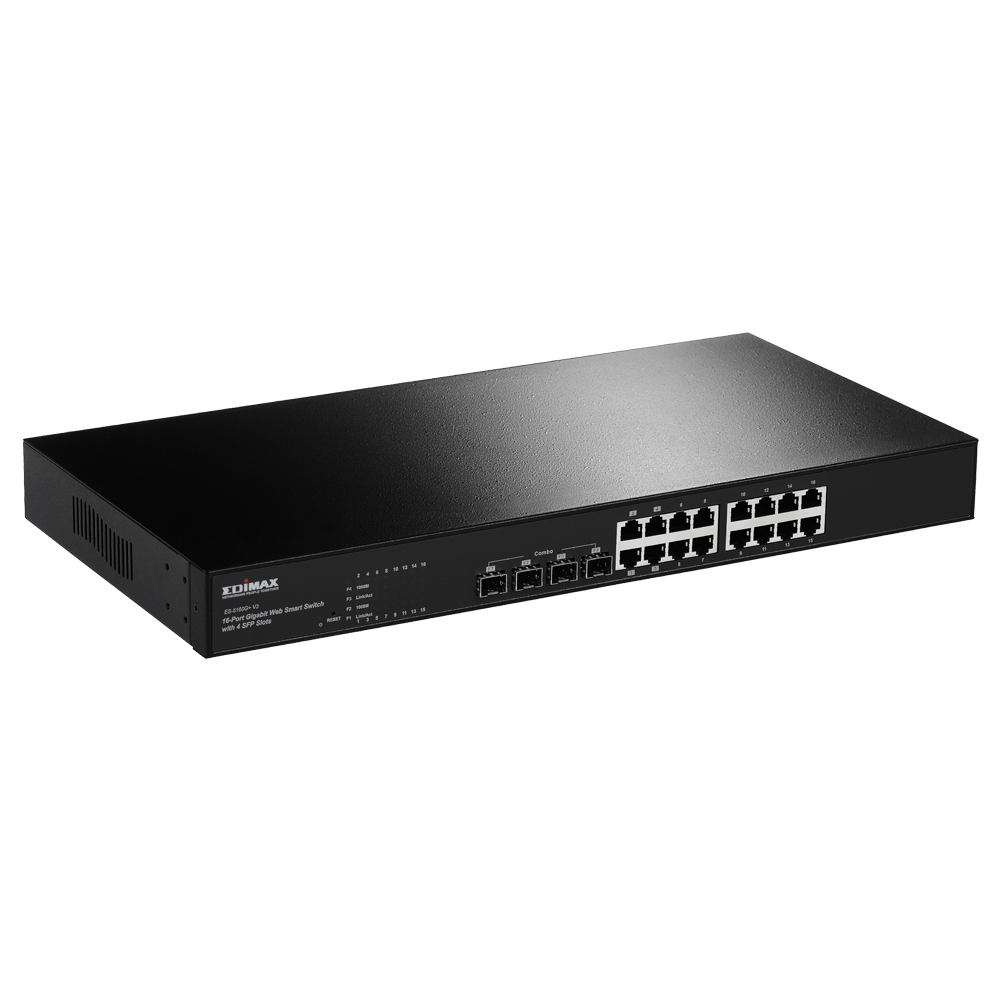


ES-5160G+ V3
29 พฤศจิกายน 2560
ผู้ชม 851 ผู้ชม
- Complies with IEEE802.3/802.3u/802.3ab/802.3z Standards
- Supports IEEE802.3x Flow Control
- Supports IEEE802.1q Q-in-Q Tag VLAN
- Supports IEEE802.1p QoS
- Supports QoS with 4 Priority Queues
- Supports Port Mirroring
- Supports Per-Port Shaping, Policing and Broadcast Storm Control
- Supports Multicast/Broadcast/Unknown-Unicast Storm suppression
- Supports 8K MAC address entries
- Supports 9600 byte Jumbo Frames
- Supports 802.1x Network Access Security
- Provides Web-Based Management
The ES-5106G+ v3 is a cost-effective web-smart Ethernet switch which meets IEEE 802.3/u/x/z Gigabit Ethernet specifications. It’s equipped with 16 gigabit ports, four SFP slots and a web-browser based management interface to monitor, configure and control the activity of each port. The switch is suitable for SMB applications and additionally features QoS (Quality of Service), port mirroring, VLANs, LAN security, multicast video streaming protocol and SNMP v1.
QoS with Four Priority Queues
The QoS (Quality Of Service) feature provides four internal queues to support four different classifications of traffic and operates at full wire speed. High priority packet streams experience less delays inside the switch, which supports lower latency for delay-sensitive traffic. The switch classifies packets as one of four priorities according to 802.1p priority tags, DiffServ and/or IP TOS. The actual scheduling at each egress port can be based upon a strict priority, weighted round robin or a mix of both.
Multicast VLAN Support
Multicast VLAN is designed for applications such as Digital Video Broadcasting (DVB) which use multicast traffic across an IP Ethernet network. The feature allows one single multicast VLAN to be shared among different subscriber VLANs on the network, improving bandwidth utilization by reducing multicast traffic in the subscriber VLANs and simplifying multicast group management.
802.1x Access Control for Improved Network Security
802.1x is an IEEE standard which enables user authentication for each network access attempt. Port security features allow you to limit the number of MAC addresses per port and control the number of stations for each port. Static MAC addresses can be defined for each port to ensure only registered machines are allowed access. By enabling both of these features, you can establish an access mechanism based on user and machine identities as well as control the number of access stations.

